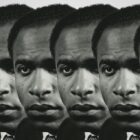
مقاله ای از آدام شاتز درباره کتاب جدید خویش “کلینیک شورشی: زندگی های انقلابی فرانتس فانون” که به زندگی و میراث یک متفکر بزرگ پسااستعماری می پردازد.

The Revolutionary Stranger: How Frantz Fanon Put Theory Into Practice
Adam Shatz on the Life and Legacy of a Great Post-Colonialism Thinker
In November 1960, a traveler of ambiguous origin, brown-skinned but not African, arrived in Mali. Issued in Tunis two years earlier, his passport identified him as a doctor born in 1925 in Tunisia, height: 165 cm, color of hair: black, color of eyes: black.
The pages were covered with stamps from Nigeria, Ghana, Liberia, Guinea, Italy. The name on the passport, a gift from the government of Libya, was Ibrahim Omar Fanon, a nom de guerre. The psychiatrist Frantz Fanon was not from Tunisia but from Martinique. He had not come to Mali to do medical work: he was part of a commando unit.
It had been a long journey by car from the Liberian capital of Monrovia: more than twelve hundred miles through tropical forest, savanna, and desert, and the eight-man team still had far to go. From the journal he kept, it’s clear that Fanon was mesmerized by the landscape. “This part of the Sahara is not monotonous,” he writes. “Even the sky up there is constantly changing. Some days ago, we saw a sunset that turned the robe of the sky a bright violet. Today it is a very hard red the eye encounters.” His entries move freely between rousing expressions of hope and somber reminders of the obstacles facing African liberation struggles. “A continent is on the move and Europe is languorously asleep,” he writes. “Fifteen years ago it was Asia that was stirring. Today 650 million Chinese, calm possessors of an immense secret, are building a world entirely on their own. The giving birth to a world.” And now an “Africa to come” could well emerge from the convulsions of anti-colonial revolution.
Yet “the specter of the West,” he warns, is “everywhere present and active.” His friend Félix-Roland Moumié, a revolutionary from Cameroon, had just been poisoned by the French secret service, and Fanon himself had narrowly escaped an attempt on his life on a visit to Rome. Meanwhile, a new superpower, the United States, had “plunged in everywhere, dollars in the vanguard, with [Louis] Armstrong as herald and Black American diplomats, scholarships, the emissaries of the Voice of America.”


هنوز نظری ثبت نشده است. شما اولین نظر را بنویسید.